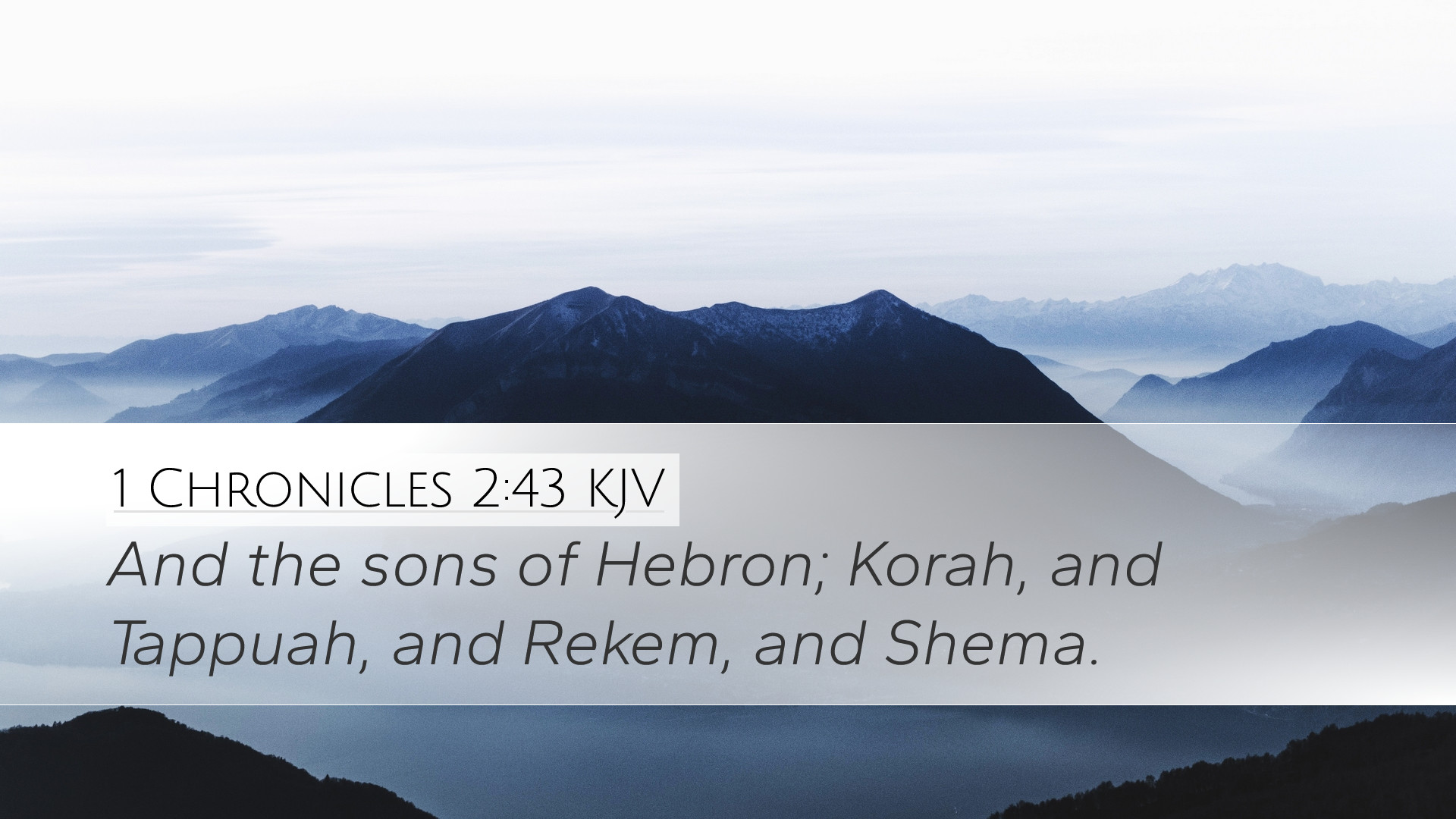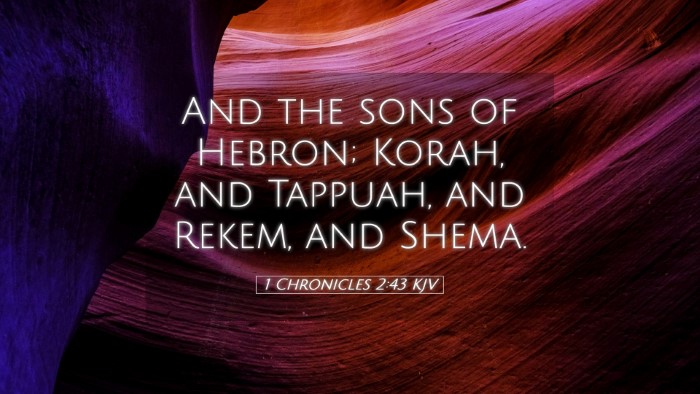Commentary on 1 Chronicles 2:43
Bible Verse: "Now the sons of Hebron: Korah, and Tappuah, and Rekem, and Shema." (1 Chronicles 2:43)
Understanding the Context
The genealogies presented in 1 Chronicles serve a vital function in tracing the lineage of the Israelite tribes, emphasizing the covenant relationship God has with His chosen people. This specific verse, nestled within a genealogy, introduces the descendants of Hebron, indicating their significance in the unfolding story of Israel.
Commentary Insights
1. Genealogical Importance
Matthew Henry emphasizes that genealogies in Scripture are not mere lists of names, but a testament to God's faithfulness through generations. They highlight the continuity of His promises and the unfolding story of redemption.
2. The Sons of Hebron
Albert Barnes notes that Hebron was an important city in the history of Israel, associated with several significant biblical events, including being a city of refuge and a part of the territory allotted to Caleb. The sons mentioned—Korah, Tappuah, Rekem, and Shema—are therefore significant both in their heritage and in the broader narrative of Israel's history.
3. Names and Their Meanings
Adam Clarke offers insight into the meanings of the names listed:
- Korah: It means "bald" or "to be cold," which could suggest a person known for their individuality or separation.
- Tappuah: This name signifies "apple" or "blossom," perhaps indicative of beauty and health.
- Rekem: The meaning is less clear, but it might denote "a certain spaciousness" or reflect a place name.
- Shema: Translated as "to hear," this name conveys the idea of attentiveness or being responsive to God.
Theological Implications
The genealogy in 1 Chronicles 2:43 illustrates the intricate tapestry of the Israelite lineage, reminding us that God uses ordinary people and families in the unfolding of His divine purpose. Each name represents individuals with their own story and legacy, demonstrating God's faithfulness through diverse paths.
The Call to Generational Faithfulness
The mention of Hebron's sons invites contemporary readers to contemplate the significance of legacy. Matthew Henry remarks that as believers today, we are also part of a generational narrative. The faithfulness of previous generations serves as a foundation upon which the current generation must build. Encouragement is drawn from this passage to consider the impact of one's life on future generations.
Restoration and Hope
Albert Barnes reflects on the broader redemptive arc found within the genealogies. Despite humanity's failures and lapses, God in His mercy continues to weave a story of restoration. As we examine the sons of Hebron, we are reminded that each life has the potential to influence both present and future generations significantly.
Practical Applications for Today
- Understanding our Identity: Recognizing that, like the descendants of Hebron, we have a heritage and a part to play in God's story provides a sense of place and purpose.
- Committing to Legacy: Pastors and church leaders are encouraged to stress the importance of faithfulness not only in their own journey but also in equipping others to pass on their faith to the next generation.
- Celebrating our Community: Just as the genealogy connects individuals to the larger community of faith, believers today should celebrate their roles in their local church and what that legacy means for future disciples.
Conclusion
1 Chronicles 2:43 serves as a reminder of the richness of the biblical narrative. Through the details of genealogies, we uncover profound theological truths and practical lessons for today. As we engage with these texts, may we recognize the call to live faithfully in our own time, to honor the legacies of those who came before us, and to lay down a foundation for those who will follow.


